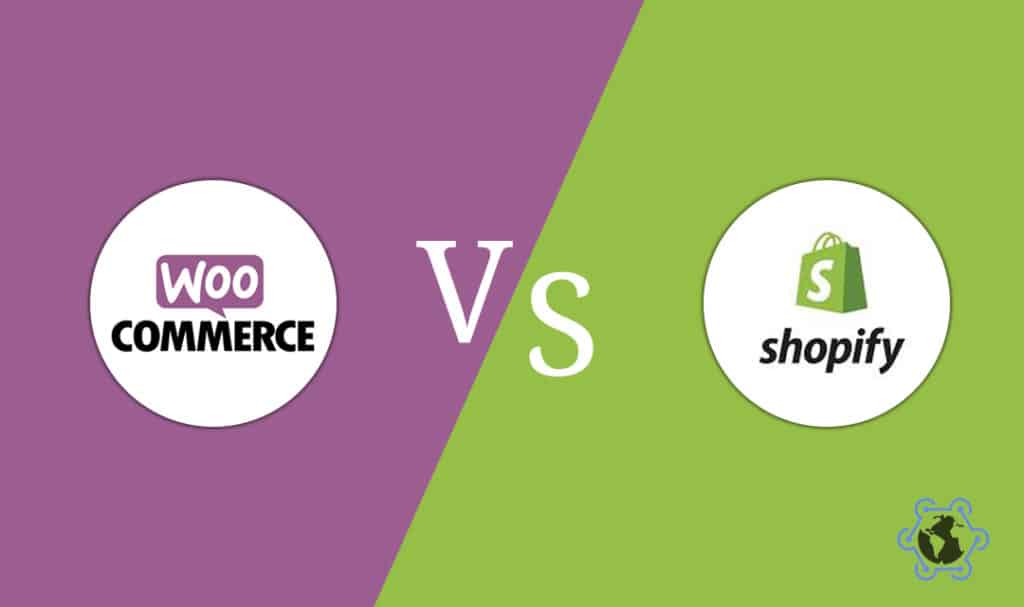WooCommerce and Shopify are two popular e-commerce platforms, each with its own strengths and characteristics. The choice between WooCommerce and Shopify depends on your specific needs, technical expertise, and business goals. Here’s a comparison of the Woocommerce and Shopify platforms.
WooCommerce:
Open-Source: WooCommerce is an open-source e-commerce plugin for WordPress, which means it’s free to use, and you have more control over your website’s code.
Self-Hosted: To use WooCommerce, you need to have your own web hosting and a WordPress website. This gives you greater flexibility in terms of customization.
Customization: WooCommerce is highly customizable. You can tailor your online store to your specific needs by using themes and plugins. This flexibility is ideal for businesses with unique requirements.
Payment Options: WooCommerce supports a wide range of payment gateways, including PayPal, Stripe, and more. You can also add custom payment methods if needed.
Scalability: WooCommerce can handle both small and large online stores, but you might need to invest more in hosting and development as your business grows.
Content Management: Since it’s based on WordPress, WooCommerce allows you to create and manage not just your e-commerce store but also other types of content, such as blogs and informational pages.
SEO: WooCommerce offers excellent SEO capabilities. You can optimize product pages and content for search engines.
Ownership: You have full ownership and control of your website and data.
Plugin for WordPress: WooCommerce is an open-source e-commerce plugin for WordPress, one of the most widely used content management systems (CMS) on the web. This means you’ll need a WordPress website to use WooCommerce.
Flexibility: WooCommerce is highly customizable, offering extensive flexibility for developers to modify and extend the platform to meet specific requirements. It’s a good choice if you have unique or complex e-commerce needs.
Cost: WooCommerce itself is free, but you’ll need to pay for web hosting, a domain name, and potentially various plugins and themes. Costs can vary depending on your specific requirements.
Scalability: It can handle small to large online stores, but you may need technical expertise to scale and optimize the platform as your business grows.
Design: You can choose from a wide range of WordPress themes, both free and premium, to customize the look and feel of your online store.
Extensions: WooCommerce has a vast ecosystem of free and premium plugins that can add features and functionalities to your store.
Platform: WooCommerce is a plugin for WordPress. It turns a WordPress website into an e-commerce store.
Pricing: WooCommerce is an open-source platform, so the core plugin is free. However, you’ll need to pay for web hosting, domain registration, and possibly premium plugins and themes. Costs can vary depending on your specific needs.
Shopify:
Hosted Solution: Shopify is a fully hosted e-commerce platform, which means you don’t need to worry about web hosting. Shopify takes care of the technical aspects for you.
Ease of Use: Shopify is known for its user-friendliness. It’s easy to set up and manage your store, making it a great choice for beginners.
Customization: While Shopify offers a range of themes and apps for customization, it’s not as flexible as WooCommerce in terms of deep customization. You can customize the look and feel, but there are limitations to what you can change.
Payment Options: Shopify also supports various payment gateways, and it has its own payment solution called Shopify Payments.
Scalability: Shopify is designed to scale easily, making it suitable for small businesses and large enterprises alike. You won’t need to worry about server resources or hosting as you grow.
Content Management: Shopify’s primary focus is on e-commerce, so its content management features are more limited compared to WordPress.
SEO: Shopify has solid SEO features, but the level of control and customization is not as extensive as with WooCommerce.
Ownership: While you have control over your store’s content, you are essentially renting Shopify’s platform. You don’t have as much control over the underlying infrastructure.
Design: Shopify provides a variety of professional, customizable themes that are optimized for e-commerce. You can also customize these themes to some extent.
App Store: Shopify has a vast app store where you can find a wide range of add-ons and integrations to extend the functionality of your store.
Platform: Shopify is a standalone e-commerce platform. You don’t need to install it on another content management system like WordPress.
Pricing: Shopify has a subscription-based pricing model. There are various plans with different features and costs. The pricing includes hosting and some essential e-commerce features.
Themes: Shopify offers a range of professionally designed themes, both free and paid.
Security and Maintenance: Shopify takes care of security, updates, and maintenance. You can focus on running your business without dealing with technical issues.
Transaction Fees: While Shopify has its own payment gateway, you can use other payment providers. However, Shopify charges additional transaction fees on top of what payment gateways may charge.
Monthly Subscription: Shopify operates on a subscription model, and you’ll need to pay a monthly fee, which includes hosting and support.
In summary, the choice between WooCommerce and Shopify depends on your specific requirements:
Choose WooCommerce if you want complete control, unlimited customization options, and are comfortable with managing hosting and technical aspects.
Choose Shopify if you prefer an all-in-one solution with hosting provided, a user-friendly interface, and a range of built-in e-commerce features.
Both platforms are capable of creating successful online stores, and the choice ultimately depends on your business needs and technical expertise.



